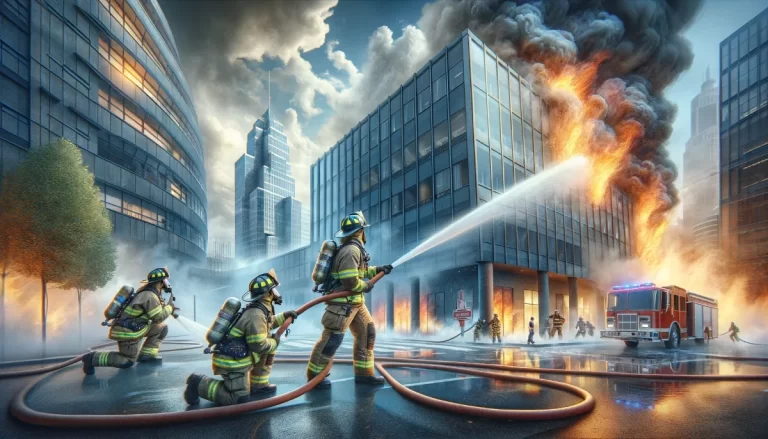Fire safety is a major concern in any environment, from homes and commercial buildings to critical industries. Choosing the right fire suppression system is essential for the protection of life, property and the environment. But how can you choose the right system for your needs? Here is a detailed overview of the key factors to consider.
1. Type of Environment or Industry
The first step in choosing a fire suppression system is to consider the type of environment or industry in which it will be installed. Each industry has its own specific fire protection needs.
For example:
- Residential: In residential environments, fire suppression systems may be integrated into the building or may be portable solutions such as fire extinguishers or sprinkler systems.
- Commercial Buildings: Commercial buildings often require more complex fire suppression systems that can protect both public spaces and high fire risk spaces such as kitchens or warehouses.
- Specific Industries: Industries such as chemical, oil and gas, energy or data centres have specific fire protection needs due to potentially high risks.
Types of Fire Suppression Systems
There are several types of fire suppression systems, each with specific advantages and disadvantages:
- Sprinkler Systems: These use water to extinguish fires and are suitable for many environments. Water sprinkler systems can be activated automatically or manually.
- Gas Systems: These systems use special gases, such as inert gas or carbon dioxide, to suppress fires. They are ideal in environments where water could cause damage or in electrical equipment.
- Aerosol Systems: Aerosol systems can suppress fires by releasing fine particles. They are suitable for spaces where other methods could cause damage.
- Portable Extinguishers: Portable extinguishers are small fire extinguishing solutions suitable for domestic use or in small environments.
- Control and Detection Systems: In addition to extinguishing systems, control and detection systems can monitor and alert of potential fires before they become critical.
3. Space Size and Configuration
The size and configuration of the space to be protected are important factors. A fire suppression system for a multi-story building may require a different approach than a system for an open space. It is essential to assess the size, partitioning and construction type of the space to choose the appropriate solution.
4. Costs and Budget
Cost is, of course, a crucial factor. It is important to set a realistic budget and look for solutions that fit within it. However, don’t forget that investing in fire protection is an essential preventative measure and can reduce financial risks in the long run.
5. Local Regulations and Standards
Regulations and standards vary from region to region. It is essential to ensure that the fire suppression system you choose meets all local legal and safety requirements.


